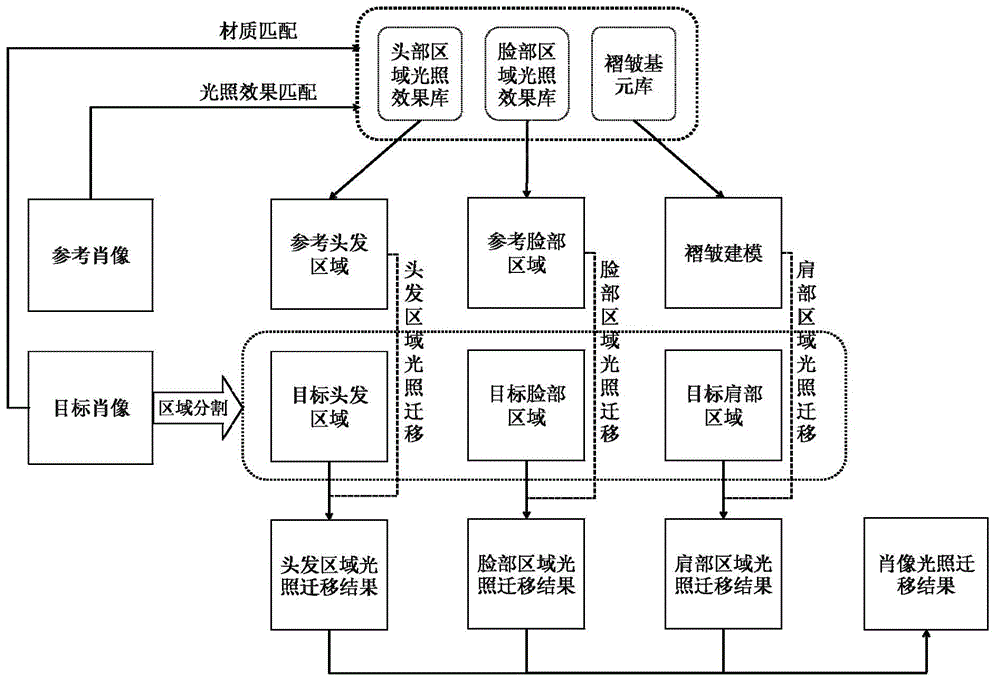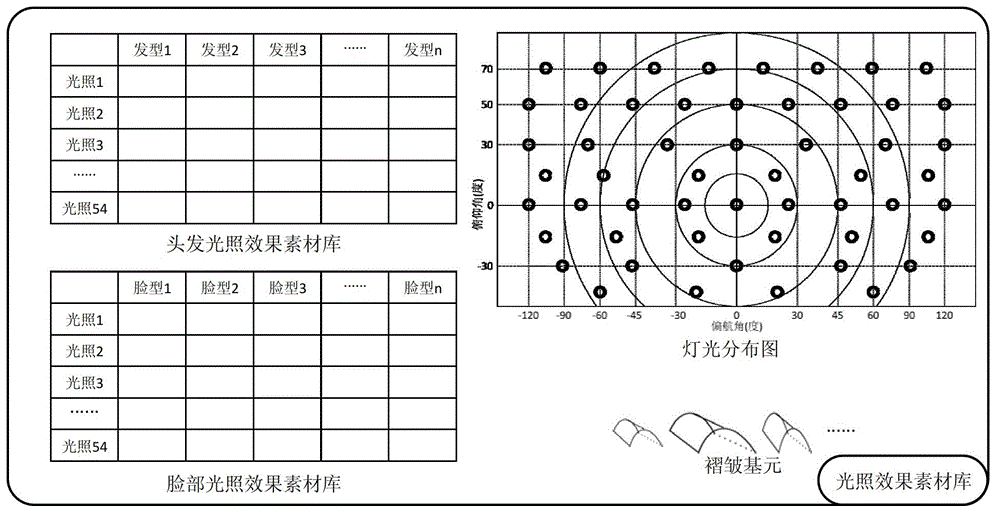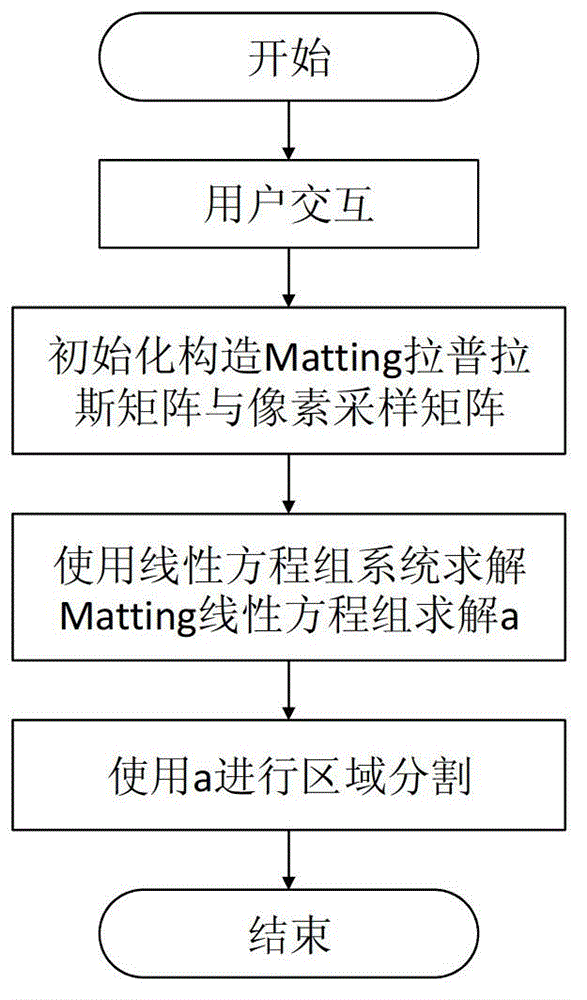Region-segmentation-based portrait illumination transfer method
A light migration and area segmentation technology, applied in image analysis, image data processing, instruments, etc., can solve the problems of missing reflectance characteristics and structural characteristics, poor sense of reality, etc., achieve real light migration effect, and enhance the effect of local highlights
- Summary
- Abstract
- Description
- Claims
- Application Information
AI Technical Summary
Problems solved by technology
Method used
Image
Examples
Embodiment Construction
[0055] The present invention will be further described in detail below in conjunction with the accompanying drawings, so that those skilled in the art can implement it with reference to the description.
[0056] refer to figure 1 Is the general frame diagram of the present invention. The present invention includes a lighting effect material library, and for the hair area and face area of the input portrait, portrait materials similar to the material of the target area and similar to the lighting of the reference area can be matched in the library. Modeling of folds in the upper region. In the present invention, the target portrait is first segmented into three areas: hair area, face area, and shoulder area. For the hair area and face area, match the area in the lighting material library with similar materials to the target portrait and the lighting effect of the reference portrait. For the shoulder area, use the wrinkle primitives in the lighting material library to model ...
PUM
 Login to View More
Login to View More Abstract
Description
Claims
Application Information
 Login to View More
Login to View More - R&D
- Intellectual Property
- Life Sciences
- Materials
- Tech Scout
- Unparalleled Data Quality
- Higher Quality Content
- 60% Fewer Hallucinations
Browse by: Latest US Patents, China's latest patents, Technical Efficacy Thesaurus, Application Domain, Technology Topic, Popular Technical Reports.
© 2025 PatSnap. All rights reserved.Legal|Privacy policy|Modern Slavery Act Transparency Statement|Sitemap|About US| Contact US: help@patsnap.com



